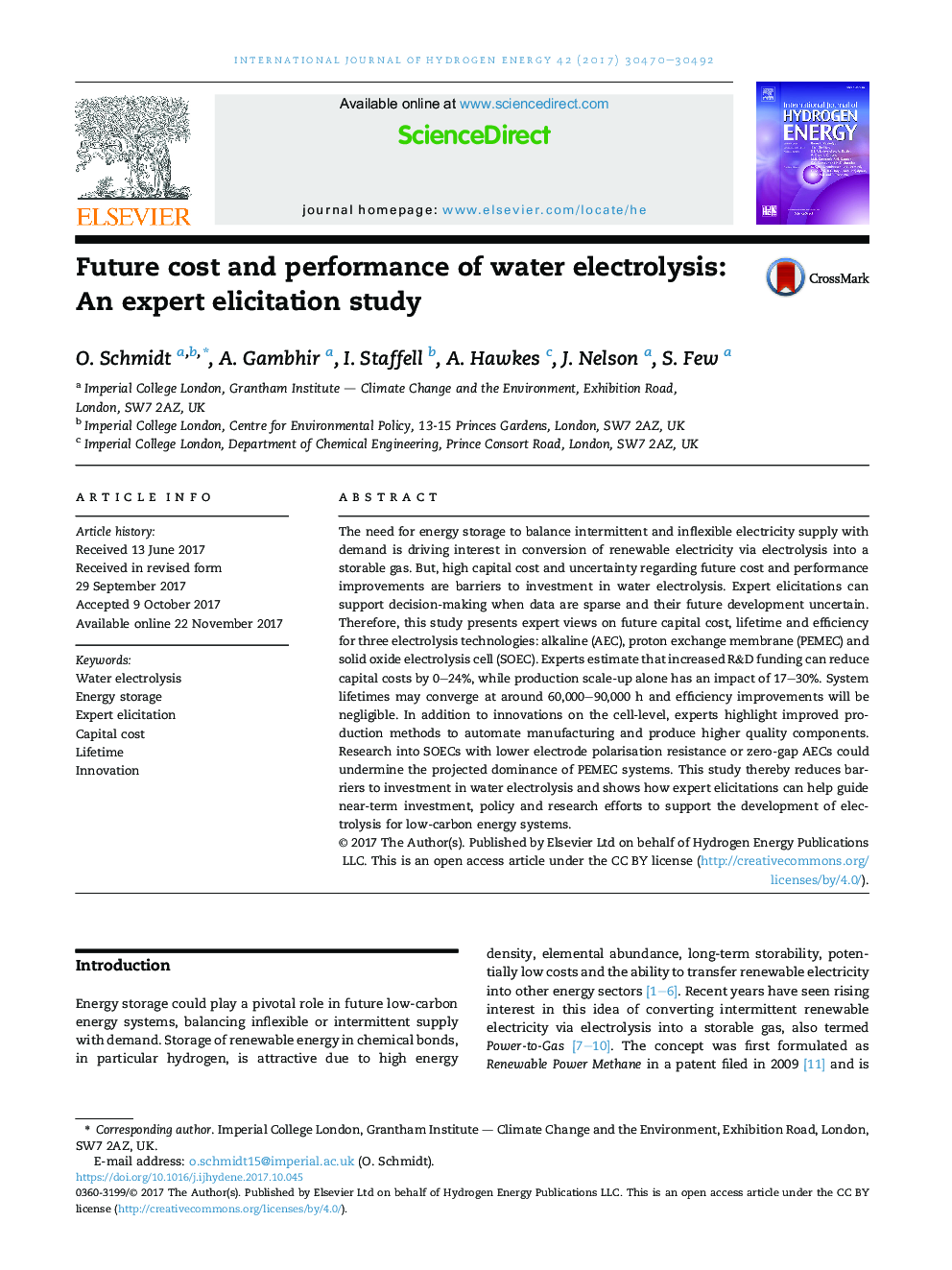| Article ID | Journal | Published Year | Pages | File Type |
|---|---|---|---|---|
| 7708566 | International Journal of Hydrogen Energy | 2017 | 23 Pages |
Abstract
The need for energy storage to balance intermittent and inflexible electricity supply with demand is driving interest in conversion of renewable electricity via electrolysis into a storable gas. But, high capital cost and uncertainty regarding future cost and performance improvements are barriers to investment in water electrolysis. Expert elicitations can support decision-making when data are sparse and their future development uncertain. Therefore, this study presents expert views on future capital cost, lifetime and efficiency for three electrolysis technologies: alkaline (AEC), proton exchange membrane (PEMEC) and solid oxide electrolysis cell (SOEC). Experts estimate that increased R&D funding can reduce capital costs by 0-24%, while production scale-up alone has an impact of 17-30%. System lifetimes may converge at around 60,000-90,000Â h and efficiency improvements will be negligible. In addition to innovations on the cell-level, experts highlight improved production methods to automate manufacturing and produce higher quality components. Research into SOECs with lower electrode polarisation resistance or zero-gap AECs could undermine the projected dominance of PEMEC systems. This study thereby reduces barriers to investment in water electrolysis and shows how expert elicitations can help guide near-term investment, policy and research efforts to support the development of electrolysis for low-carbon energy systems.
Related Topics
Physical Sciences and Engineering
Chemistry
Electrochemistry
Authors
O. Schmidt, A. Gambhir, I. Staffell, A. Hawkes, J. Nelson, S. Few,
